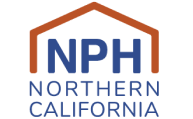February 19, 2021
How could Northern California, the wealthiest and most politically progressive region in the United States, become one of the earliest epicenters of the foreclosure crisis? How could this region continuously reproduce racial poverty and reinvent segregation in old farm towns one hundred miles from the urban core? This is the story of the suburbanization of poverty, the failures of regional planning, urban sprawl, NIMBYism, and political fragmentation between middle-class white environmentalists and communities of color. As Alex Schafran shows, the (more...)
Do you like it?
February 19, 2021
Race for Profit uncovers how exploitative real estate practices continued well after housing discrimination was banned. The same racist structures and individuals remained intact after redlining’s end, and close relationships between regulators and the industry created incentives to ignore improprieties. Meanwhile, new policies meant to encourage low-income homeownership created new methods to exploit Black homeowners. The federal government guaranteed urban mortgages in an attempt to overcome resistance to lending to Black buyers � as if unprofitability, rather than racism, was (more...)
Do you like it?
February 19, 2021
To scholars and social critics, the racial segregation of our neighborhoods has long been viewed as a manifestation of unscrupulous real estate agents, unethical mortgage lenders, and exclusionary covenants working outside the law. This is what is commonly known as �de facto segregation,� practices that were the outcome of private activity, not law or explicit public policy. Yet, as Rothstein breaks down in case after case, private activity could not have imposed segregation without explicit government policies (de jure segregation) (more...)
Do you like it?
February 19, 2021
Founded in 1991, Living Cities is a collaborative of the world’s largest foundations and financial institutions fostering transformational relationships across sectors to connect those who are willing to do the hard work of closing racial income and wealth gaps. They provide various resources to advance equity in organizations and close the racial wealth gap.
Do you like it?

